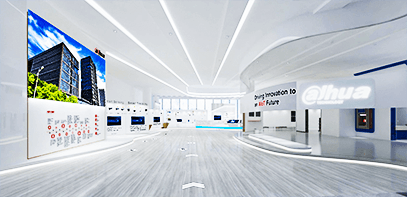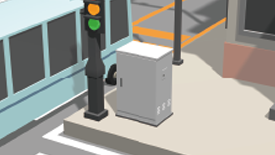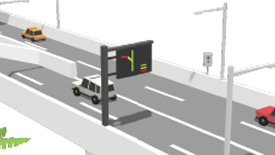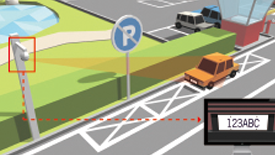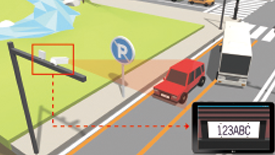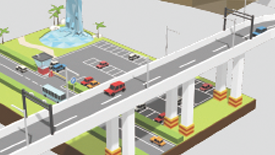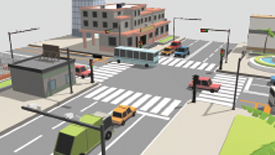REAL TIME TRAFFIC STATUS DISPLAY
Background
Millions of people deal with traffic congestion on a daily basis. The roadways leading into and out of most major cities can
become gridlocked due to accidents, road construction, or simply a high number of cars on the road.
System Overview

• Solution Details
>> Traffic Data Collection
Traffic data is collected by traffic flow cameras using non-intrusive virtual loops where detection is done through advanced computer algorithms and does not involve any road work as in the case of an inductive loop. It can cover 1-4 lanes at a time, and has a 99% detection accuracy at speed below 80km/h.

>> Information Dissemination
Another core system function is information dissemination, which can also help guide traffic with these additional information types:

Feature and Benefits
>>Works for both highways and surface streets.
>>Cameras provide accurate data in real-time.
>>Collects data for transit authorities.
>>Improves road safety by avoiding incidents and reducing accidents on the road.
Background
Many signal controllers are unable to automatically adjust signal timing based on real-time traffic flows, which could lead to
long traffic queues during rush hour, requiring more police resources to direct traffic.
>> Traffic Data Processing
An advanced traffic flow information analysis algorithm gets and analyzes a city's traffic conditions in real time and displays results on special road signs in colors of red, yellow, and green to represent the speed of traffic flow. It serves as a guide to help drivers select the best travel route, easing overall traffic congestion.




